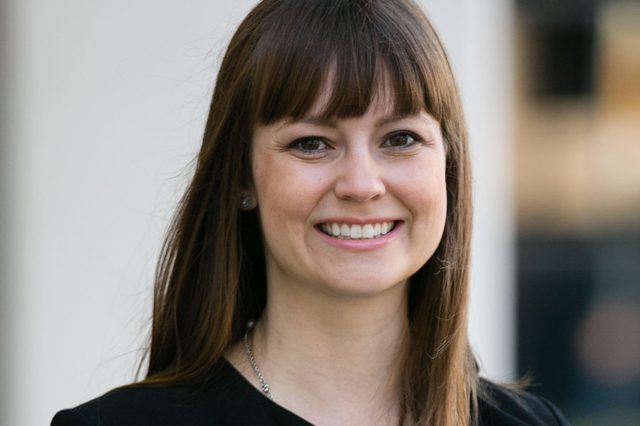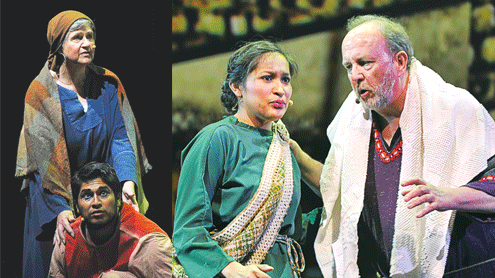New Frontier Publications founder and editor in chief Dr. Robert Docter, O.F., steps down after 34 years.
By Christin Thieme –
 In the back of Miss Schroder’s third grade classroom circa 1936, behind a divider where students stored their lunchboxes, sat Bob Docter—exiled for too much talking.
In the back of Miss Schroder’s third grade classroom circa 1936, behind a divider where students stored their lunchboxes, sat Bob Docter—exiled for too much talking.
“I considered it my personal office,” Docter said. “I could hear her, but how I responded couldn’t be seen, so I had a wonderful time doing whatever I wanted.”
Some 80 years later, as he retires as Editor in Chief of New Frontier Publications, Docter’s voice—and personality—remain strong.
Docter started the Western Territory’s publications department in 1983, and has penned over 600 columns that have amplified his voice around the world.
Starting a written publication for The Salvation Army was a natural fit for Docter, who has been part of the organization since birth. A bandsman for more than 70 years, he is a longtime soldier of the Pasadena Tabernacle Corps, where he served as corps sergeant major for 40 years.
“It doesn’t seem to take large numbers of people to bring about significant change—only a few—say 12,” he wrote in one column. “But the messenger must have certain qualities—be able to stimulate, excite, attract, inspire—be able to relate meaningfully to the persons receiving the message with a genuineness so deep that even the non-verbal message shouts of sincerity. It’s ‘word of mouth’ that gets this message out.”
Docter was recognized in 1992 for his voice and vision, and admitted into the Order of the Founder by General Eva Burrows “as recognition for his unique contribution to the life and growth of the Army through his remarkable creativity, innovative leadership, Christian vibrancy and sustained loyalty.”
Burrows wrote in the foreword to Docter’s first book, “A View from the Corner” (Frontier Press, 2008), “I’ve never become tired of hearing what he’s had to say—whether it’s helped me to look more clearly at myself, or more clearly at this Salvation Army to which I have committed my life, or more clearly at the necessity for positive change in every area of church life and community care and social justice.”
Printing first became a hobby for Docter when he was in junior high in San Francisco, Calif., and he and his twin brother, Richard, helped their dad, the first public relations secretary for The Salvation Army in the West. The duo printed posters, business cards and advertisements, and Docter later enrolled in a print trade class in school.
Docter was born in San Francisco in 1928 to Salvation Army officers, Lloyd and Violet. The twin’s older brother, Wilfred, died before their birth, poisoned after getting into a pan of engine fluid, which led their mother to live cautiously with them. By the time he was in college, Docter studied radio broadcast at Los Angeles City College and had a column in the school newspaper. He wrote and acted in radio dramas, and became involved in school politics, serving on student council.
“I learned a lot there about politics and life,” Docter said. “It developed much of my self-image as I became more knowledgeable about how things run and how to be involved in the system.”
With an associate degree, Docter spent the next three years as an English major at UCLA. He graduated as the Korean War started, and he began work on a teaching credential.
Docter was drafted into the U.S. Army in 1952 and spent 21 months stationed at Fort Ord in Monterey, Calif., as a member of the Sixth Infantry Division Band, playing trumpet.
He was discharged in 1954 after being admitted to a graduate program for educational psychology at USC, and then taught full time for 18 months before entering a doctoral program at USC for educational psychology and counseling. During this time, he also worked part time for The Salvation Army, writing and producing radio pieces—like the “Army of Stars” annual show—and completing evaluations of social services programs.
Docter began teaching at San Fernando Valley State College, now California State University, Northridge, in 1960 in a graduate counseling program for school psychologists and family therapists. He taught there for 56 years.
“Counseling is a relationship that is extremely sensitive and needs a lot of empathic responses—reading people, seeing what’s going on outside the verbal communication, what’s deeper,” Docter said. “I felt a symmetry to being on the radio, where on the mic you work to establish a relationship with the listener.”
In 1969, Docter ran for the Los Angeles School Board for a third time and was elected. He served on the board for eight years, including a stint as its president during the city’s first court-ordered requirement to integrate the schools.
“When the schools were found guilty of racial segregation, we had to come up with a plan to deal with it,” Docter said. “I had to be visible with the public, explaining what was going on and being available to testify. It was very much a growing experience for me; I learned that my ideas might not be seen as the best ideas by the general public.”
He served two terms, but eventually, “because of my ideals and visibility, I lost in the next election.”
But for Docter, no experience compares to that of marrying Diane in 1953. The pair met at a Salvation Army summer camp in Colorado two years prior when she arrived at age 16 as a camper from Salt Lake City. Docter recruited her to stay on as a camp counselor.
“I fell in love with her that summer,” he said.
When each returned home, the pair spent a lot of time writing back and forth. “Salt Lake City is a long way from Los Angeles,” Docter said.
She later moved to Los Angeles for a nurse’s training program, and while on a lunch break one day, Docter asked her to marry him, sitting on a bench in a nearby park. They have six children together.
“It is the best decision I’ve ever made,” he said. “She is the bright spot in my life.”
Docter said he plans to get back to other writing pursuits, including a fiction book he’s worked on for years that parallels his father’s experience as a teenager.
“If he doesn’t have a star on Hollywood’s Walk of Fame, he should,” wrote General Paul Rader (Ret.), who, before becoming The Salvation Army’s international leader, served as Territorial Commander in the USA Western Territory, in the foreword to Docter’s second book, “Integrity: A Complete Life” (Frontier Press, 2015). “Bob’s faith is a lived faith in the beauty and promise, and also, the messiness and unpredictability of our daily lives.”
Though he will continue writing “On the Corner” in New Frontier Chronicle, Docter said he will miss the regular association with “people who get things done and are on a schedule.”
The demands on his calendar may lessen, but his voice will remain one of legacy for the publication and for The Salvation Army.















